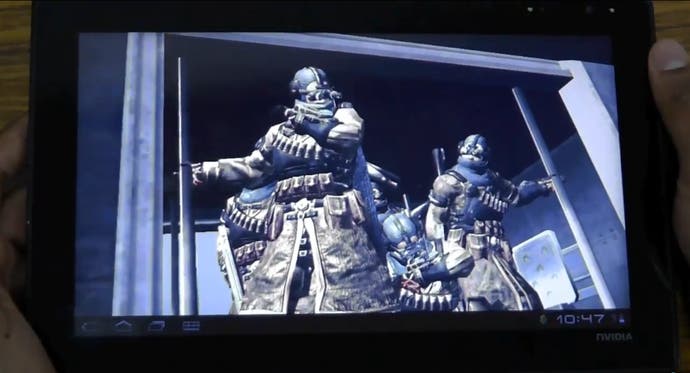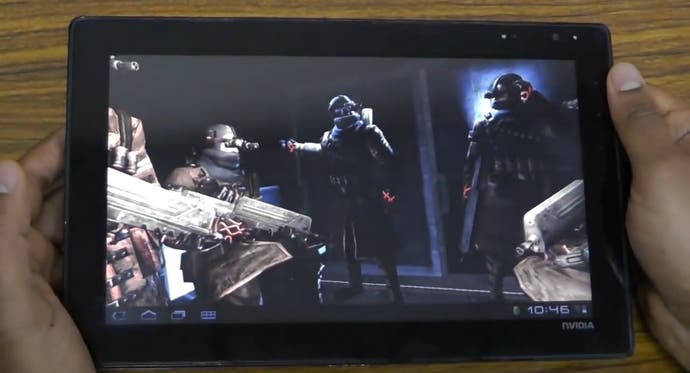In Theory: Windows 8 and the Future of PC Gaming
Digital Foundry on what Microsoft's next OS means for video games.
No, technological power isn't really the issue in whether PC gaming can transition onto tablets and smartphones. Give it a year or three and we'll get there. In this fascinating GDC presentation, Infinity Blade developers Chair describe current smartphone tech as being akin to last generation consoles but with bags of RAM, and they reckon that mobile tech will surpass current generation consoles within three years. As it is, the whole basis of cross-platform development right now is all about scalability - getting your game to work on five-year-old graphics tech (i.e. Xbox 360 and PS3) while still providing a cutting-edge PC experience. Expanding that to include next-gen mobile tech is unlikely to prove that difficult.
It's also exciting how this approach to scalability could change the way we play games. In a week where Konami revealed how you can switch game progress between PSP and PS3, the transition of Windows onto mobile means that with Steam's cloud-sharing capabilities, you could essentially get this as standard.
Perhaps the real challenge going forward is an altogether more practical issue: control. The Windows 8 demo is based on the principle of running the OS on a tablet, but it's clear that the thinking from both Microsoft and indeed Apple that touch is to be the centrepiece of the desktop experience too. A tile-based interface would work with a mouse, but it wouldn't be particularly satisfying, so where do we go from here?


In this situation, Apple has already laid down the groundwork for its transition into a touch-based operating system with the release of its Magic Trackpad, essentially a blown up version of the kind of interface built into every laptop on the market today. You can touch, click, pinch, swipe and rotate easily enough and this may well be the approach Microsoft will follow too for basic interaction with the OS.
It may even experiment with a next-gen Kinect style of interaction, the problem being that any kind of camera solution will always have positioning and latency issues compared to a "hands on" implementation. As Sony's Richard Marks put it in last year's PlayStation Move tech interview with Digital Foundry:
"In one of his books, Isaac Asimov talks about the difference between humans and animals and he believes it's our hands that make us different, more than our brains. Most people say it's the brain that's so much better, but he says it's the hands," Marks said.
"He says that the ultimate interface to a computer isn't a probe that jacks into your head, it's where you insert your hands into this device. You have so much bandwidth going through your fingers."
The Magic Trackpad seems ideal, but it simply wouldn't work for many games where - for the most part - the mouse, keyboard and joypad options can't really be beaten. Indeed, we've already seen Google introduce USB joypad support to Android 3.1 in order to address the plain and simple fact that touchscreen interfaces don't work particularly well for a multitude of traditional game types. In terms of control for the Windows 8 era of gaming, the question is whether an all-in-one system interface is yet to be created that will accommodate both OS interaction or gaming, or whether we'll still be using the tried and tested controllers we have today.
Regardless of the challenges ahead, Windows 8 represents an interesting evolution for mobile gaming and a convergence opportunity to game developers who can add another SKU to their multi-platform line-up without having to break the bank. Quite how Apple and the iOS/OSX platform will evolve to compete - if indeed it has to - remains to be seen, but perhaps the WWDC conference on June 6 will offer up some answers...








